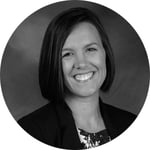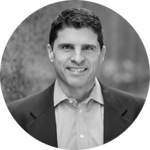Originally published by Chambers | Associate | June 15, 2021
It’s not all about Silicon Valley. Smaller tech hubs like Seattle, Chicago, Portland and Austin could provide you with just the opportunity you need to stand out in a way that isn’t always possible in the mega markets.
“For young lawyers, it’s an exceptionally interesting time to come establish a network.” [Jenifer Smith]
Tech Hubs: What’s All The Hubbub?
Think ‘tech hub’ and what comes to mind? It’s likely Silicon Valley, birthplace of the ‘silicon revolution’ and hundreds of high-tech companies including Google, Hewlett-Packard and Apple. Or perhaps New York springs to mind – its financiers and investment banks make it an ideal place for startups to get the funding they need. And then there’s Boston, with its top universities feeding a ton of talent into the established life sciences scene.
“These were the first startup areas,” Whistler Partners founder Sean Burke explains, “with all these software engineers and biologists already based there because of the schools.” These elite markets attract floods of lawyers from all over the world. At this point, they’re inundated with talent. The legal ponds in these cities are huge, and those entering now are but small fish swimming upstream among thousands of other very similar fish…
“When you start getting majors in cities like Denver, law firms are going to follow." [Sarah Wyman]
But the tide is turning. The major markets are no longer the only places you can get your hands on top-notch startup, tech and venture capital work. “All kinds of tech companies are moving to places like Austin, Texas for example,” says Burke. Jenifer Smith is co-chair of DLA Piper’s emerging growth and venture capital group and a partner in the Austin office. She says “for young lawyers, it’s an exceptionally interesting time to come establish a network. There currently aren’t enough lawyers here to capture the scale of opportunity even today, let alone what we expect in the future.”
Hubs like Austin are emerging around the country – Portland, Seattle and Chicago are three more examples. “As states want to become more competitive with the Californias and New Yorks of the world, there’s going to be even more financial benefits for organizations to move,” says Francis Kelly, managing director at Whistler. “We’re only just seeing the beginning of this.”
Even mammoth corporations are moving in. “A couple of years ago, Amazon, Google and Facebook all opened offices in Denver,” says Sarah Wyman, managing director and head of in-house at Whistler. “When you start getting majors in cities like Denver, law firms are going to follow.”
“The way the tech world works is there has to be some kind of ecosystem.” [Sean Burke]
As Burke puts it, “the way the tech world works is there has to be some kind of ecosystem.” Schools feed into industries, industries multiply, and as client demand rises, law firms start moving in too. Take Seattle, for example. “A lot of Seattle startup companies have been founded by people leaving Microsoft and Amazon,” says David Wickwire, partner at Wilson Sonsini. “You have very qualified people coming from these large, established companies, as well as the University of Washington, which has one of the top ten computer science programs globally. That has translated into a vibrant startup culture.”
“It’s not a coincidence that Cooley has offices in Denver, Seattle and Reston, VA, or that Gunderson is a leader in Ann Arbor, or that Latham has one of the bigger practices in Chicago,” says Burke. “There’s now enough of an ecosystem in these markets that they’re starting to attract talent.”
What Can A Smaller Tech Hub Do For Your Career?
By the measure of ‘a big fish in a small pond,’ moving from an established tech city to a smaller market might feel like moving a shark into a swimming pool, but there are many reasons why making the move could be great for your career.
“In startup hubs, there is more of a chance of you becoming known in the market versus in a larger market." [David Wickwire]
Get The Edge
For one, it gives attorneys the opportunity to stand out in a way that wouldn’t be possible in larger markets. Wyman recalls “when I was recruiting in Miami, I would have clients say that they wanted that ‘New York mindset’ person. There’s a different hustle and bustle about New York, and other cities crave someone trained on that energy – someone who can hit the ground running.” It’s also a numbers game, according to Burke: “If you’re in the Bay Area and a late-stage startup is looking to hire their general counsel, 100 people are going to apply. If we’re running that same search in Cleveland, Austin or Chicago, there’s way less people. We even end up having to look outside of the region to fill that role and find the skillset they’re looking for.”

“If you work hard, there’s a very good chance to make partner.” [Caleb Ginsberg]
Build Your Name
There’s no two ways about it – the coastal markets are brimming with talent. “In startup hubs, there is more of a chance of you becoming known in the market versus in a larger market,” says Wickwire. “So that means there’s an opportunity for you to really understand the whole ecosystem.” Brian Axelrad – partner at HMB Legal Counsel in Chicago – agrees that in the major hubs it can “sometimes be hard to find space for yourself to develop a path, a reputation, or a niche.” However, “in an emerging ecosystem, there’s more room to do that – to spread your wings and figure out how to do what you want to do without it being so crowded.” Smith adds that by virtue of this, “going from being a stranger to being part of the fabric of the market isn’t that difficult to do.”
In a less crowded network, career progression can look different too. Caleb Ginsberg joined K&L Gates’ Portland office as an associate from another firm in New York. “If you work hard, there’s a very good chance to make partner,” he says. “You end up getting to know the office managing partner very well, and you can bond with the people who make the decisions for that office, which is key. That doesn’t happen in New York.”
Get In On The Ground Floor
Once upon a time, the tech ecosystems on the coastal markets were new, and attorneys that were around at the time were able to arrive on the ‘ground floor’ and help build the market. That’s the opportunity that now exists in places like Chicago. Axelrad joined HMB – “a boutique, 65-lawyer firm based in Chicago” – after gaining experience at Kirkland & Ellis followed by a venture capital firm. The move gave him “a really great opportunity to get involved on the ground floor – building lots of relationships and being in the middle of what was going on – just as the startup ecosystem was taking off in Chicago.”
Reroute
“If you’re a banking associate that mostly represents banks on big finance deals,” says Tad Gruman, managing director at Whistler, “It’s hard to get a job in the Bay Area or New York where they’d let you switch and become a startup attorney.” But if you move to a location where there’s not enough people doing that work, you’re more likely to be able to switch. “We’ve had numerous examples of people going to Denver and Seattle and getting to completely switch practice areas based on the fact that they have really great credentials.” In these smaller hubs, “there’s not enough superstar attorneys with New York or Stanford/Bay Area credentials, so when attorneys go there, they get their pick.”
Ecosystems In Focus
So what exactly can you expect in these emerging markets? While they all share a certain buzz, each has its own characteristics and something different to offer.
“Over time this is becoming more expansive – there’s a ton of businesses in other industries too, like real estate technology.” [Brian Axelrad]
Let’s start with Seattle. Wickwire describes his native city as “one of the strong startup markets,” combining a strong local university with large company presences like Amazon and Microsoft, which has been headquartered in the region since 1979. “Historically Seattle has been an enterprise software town, now called SaaS” – Software as a Service. “But Seattle is also strong in all things cloud,” Wickwire continues, highlighting that “two out of the three public clouds are based here.” It’s also where aerospace giant Boeing was founded, so it has a long history of strong engineering talent. “Those in other markets may dispute this,” Wickwire contends, “but I don’t think there is another market that is more interconnected with the Bay Area than Seattle. I think that’s evidenced by the number of Bay Area VCs coming to Seattle and investing in our great startup companies.” Wickwire observes that “company creation and investment has become more institutionalized over the last three to five years.” As an example, he points to Seattle’s startup studio, Pioneer Square Labs, which has created over 25 startup companies in the last five years– “nearly every company that has been spun out has received venture funding.” How’s that for an ecosystem?
Austin’s had a big tech boom over the last decade – it even has its own ‘Silicon Hills’ locale where many tech companies have an office. The city is a big player in clean tech, health tech, and space tech – all the techs! Smith, who’s lived and worked here for over 18 years, points out that “many of our competitors [on the coast] have people who only do M&A or emerging companies work. Here in Austin, most of us in corporate practices have a more full-firm relationship with clients and are able to handle a wider range of transaction types.” She also points to “a level of excitement” in the city. “There’s a sense that Austin is about to become something significantly bigger than what it’s been.” In particular, “we’re now seeing more life sciences and consumer packaged goods work, and I think that is going to continue to grow.”
Portland is known for industries such as high tech, manufacturing, and athletic/outdoor apparel – both Adidas and Nike have their US headquarters here. Ginsberg, whose practice focuses on sports, media and emerging growth, tells us “my previous firm was an amazing place to learn as it already had a solid sports practice group.” Moving to K&L Gates’ Portland office gave him “the opportunity to be part of the team that was building the sports practice.” More generally, he notes “the startup community is blossoming in Portland, with folks coming in from Palo Alto, San Francisco, and LA to relocate their business because it’s cheaper.” Oh, and it doesn’t hurt that “the food and drink scene in Portland is amazing.”
Chicago has a more established hedge funds and private equity market than the other hubs we’ve looked at, which Burke says positions it well as “the next FinTech location.” Axelrad – a Chicago native – says the evolution of the city in the last decade means it’s also “emerging as a major startup ecosystem.” Historically, certain industries have been core to Chicago’s economy, including food and beverages and healthcare, but Axelrad flags that “over time this is becoming more expansive – there’s a ton of businesses in other industries too, like real estate technology.”
"Once you move out and become part of that ecosystem, you’re going to have multiple opportunities to go in-house over time – you don’t have to do it straight away." [Francis Kelly]
Making The Move
So let’s get practical: how do you get yourself there? Before asking your current firm to let you switch offices, Burke has some words of caution. “I cannot tell you how many people switch within the same firm – the firm says yes, but the local office wasn’t necessarily on board,” he says. “Everyone has heard horror stories of someone leaving the New York office to go to Denver, then spending the next year still doing New York deals in a different time zone.” Instead, suss out the opportunities with other firms and “take meetings at places that actually need you.”
Additionally, “we always encourage people not to treat searches like linear things, where they try in-house first, then interview at firms,” says Kelly. “We encourage people to look at both at the same time. Once you move out and become part of that ecosystem, you’re going to have multiple opportunities to go in-house over time – you don’t have to do it straight away.”
But first, plan ahead. “Pick a time four to six weeks ahead of when you’re going to be out there for interviews,” says Wyman. “It’s more effective for us to reach out to firms and say ‘Person X is a top candidate from New York or the Bay Area who is moving to City X and is going to be there these four days for interviews.’”
It’s also handy “to have some type of connection” to the city, largely to give the firm confidence that you’re serious about the move and intend to stick around. Gruman emphasizes that candidates need an intentional approach. “Taking meetings wherever you can get them is not going to be effective,” he says. “You can’t be speculative – you have to use definitive language like ‘I am making the move to this city because…’”

“He was wearing a golf shirt, khakis, and sandals. He was a different person!” [Tad Gruman]
The Reviews Are In
‘Quality of life’ is an argument for the regions that we’re all familiar with. Perhaps most obviously, the affordability of these markets is “definitely a positive shock for people coming from larger cities,” says Ginsberg. Smith adds that “if you’re paying thousands of dollars a month for a small apartment in San Francisco or New York, that same amount of money is likely to buy you a nice home with a yard” by comparison.
But quality of life goes beyond money. Gruman recounts meeting an associate he placed in Portland from New York. “When we first met, he was wearing suits to the nine, and he was so stressed out all the time. I saw him 90 days after he’d moved to Portland – he rode his bike to lunch, and he was wearing a golf shirt, khakis, and sandals. He was a different person!” Gruman concludes that in these hubs there’s “a quality of life that goes so far beyond just your professional happiness. You can have hobbies again, in a market that’s more accepting of that. You can ride a bike, own a car, go play golf, go canoeing…”
Wyman praises the “up-and-coming trendiness” of places like Portland, “with all the restaurants, cool bars and community efforts.” There’s also a notable ‘outdoor scene’ to these cities, which often isn’t accessible in massive metropolises. In Seattle, Wickwire describes the “epic beauty of the mountains and water surrounding Seattle, with the Cascade Range to the east, the Olympic Mountains to the west, Puget Sound and Lake Washington.” Meanwhile in Portland, Ginsberg says it’s “an hour and a half drive west to the Pacific Ocean – the Oregon Coast is really good for surfing and hiking trails. If you go an hour and a half east, you’re on Mount Hood, which has three ski resorts. Then another hour and a half east, you’re in the High Desert.” Unthinkable for the New Yorkers.
But before we veer into TripAdvisor territory, one last practical point: our interviewees agreed their working hours allow them to actually make the most of their surroundings. Achieving a better quality of life didn’t mean trading in the quality of their work. It enhanced it. “I was in New York for six years, which I loved, but it’s a more palatable pace of life in Portland,” says Ginsberg. After pulling semi-regular all-nighters in the Big Apple, the move gave him “the chance to catch my breath and get excited about work again.”









